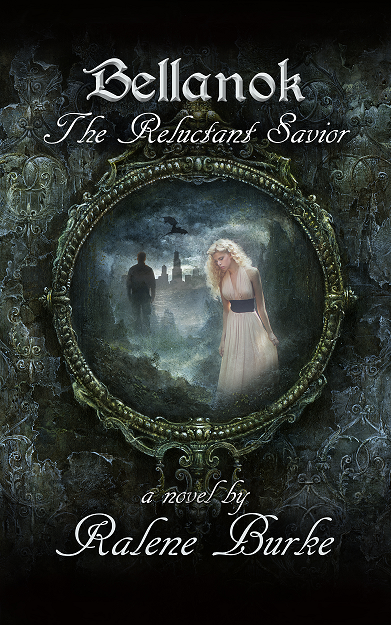Why My Novel Bellanok Stars A Christian Pastor
In my debut novel, Bellanok, a down-on-his-luck pastor is confronted with a reality different from the one he knows. This confrontation leads him to a fantastical island where he is supposed to be some kind of savior—a challenge he doesn’t believe he’s up for.
Frequently my readers ask: why a pastor? What led me to choose this profession?
Well, there are really 3 main reasons I chose for Brian to be a pastor as opposed to, say, a doctor or a copy assistant at an office store. All 3 of them have to do with breaking stereotypes and showing how God uses all kinds of people.
 Pastors are often seen as infallible.
Pastors are often seen as infallible.
Pastors are put on pedestals where they can/should not do any wrong. Never mind that they are human too. They should be perfect all the time. Their lives should reflect their God, who is also infallible.
Of course, this concept is ridiculous. Pastors (and their families) are just like us. They are always learning and growing just like us. They experience life, with all its surprises and new experiences, just like us.
When a pastor does fail or mess up, their mistakes are usually met in 2 different ways (sometimes both ways from the same person). They are either met with understanding and forgiveness, or they are met with distrust and anger.
In Bellanok, Brian is having trouble connecting with the inner-city church he works for. In a moment of doubt and weaknesses, he confesses his insecurities—and faces the hard consequences of church that has also lost their trust in him.
Pastors are often seen as having the strongest faith.
Men of God spend day in and day out thinking about God, praying to God, worshipping God. They are like BFFs with God. Right? They should never worry, never fear, never doubt. Everything should be perfect in their lives because they love God and God loves them.
Anyone else rolling their eyes at this? Again, pastors are human just like us. They live in a fallen world, just like we do. One that shouts at them as loud, if not louder, than it does at us. They do their best to be the kind of pastor their church needs. But things go wrong, no matter how well prepared they are. And they feel the sting of pain when they fail, when plans go awry, when bad things happen to good people around them.
In Bellanok, Brian always thought that he had a strong faith. That is, until he’s at odds with his church. Instead of leaning on God, trusting that God’s plan will work itself out, he turns on God, turns on his church, and turns on the crazy blonde woman who tries to convince him he’s some kind of savior for a mythical island. (Well, that last part is a whole other issue. You’d have to read the book.)
Pastors are often seen as bookish pacifists.
Pastors like theology and apologetics. We know they spend their days cooped up in dusty offices, studying ancient texts and modern studies with a magnifying glass. They only take breaks to visit people who are in the hospital or stuck at home. Sometimes they run out to their kids’ ball game. While they are firm in their beliefs, they would never condone violence, in any manner. “Jesus loves you.”
Now, I blame some of this notion on media. How often are pastors/priests portrayed in any manner other than these bookish pacifists? I can think of a few times, but the majority of the time …
Pastors are a bit bookish, yes. Or at least they should be. It’s part of how they learn/grow and are able to preach. However, that may not be their main passion. They may prefer to listen to talks, sermons, etc. They may learn best in face-to-face discussions. They might get most out of just living life and comparing it to Scripture.
Ever known a pastor who knew how to fight? Yes, I’ve known a couple. They would never condone violence for the sake of violence, but they would also never let someone who was in danger suffer because they thought violence was wrong.

Ralene Burke
Brian isn’t exactly a bookish pacifist type either. He’s an athletic guy who lives in the Chicago projects. Not exactly the safest place. He’s quick on his feet and quick to adapt (usually). When he finds out what his role in Bellanok entails, it’s not something that’s a whole lot different from who he is by nature.
By making my main character a pastor, I gave people a chance to see some of the struggles of pastors in general. And I showed them that even the people we think should be the godliest of people still face temptation and wrestle with their faith or with where/how God calls them. It’s good to know that we are not much different, that they face many of the same things we do.
Have you ever had to face misconceptions you’ve had about other people, whether it be race, religion, or class?





































Hearing all this makes me more interested than I already was to read Bellanok!
This reminds me of a song I like which I’ve been hearing a lot on the radio. “Save my Life” by Sidewalk Prophets.
I’m the pastor at your church
For all these years you’ve listened to my words
You think I know all the answers
But I’ve got doubts and questions too
Behind this smile, I’m really just like you
Afraid and tired and insecure
If you look me right in the eye
Would you see the real me inside
Would you take the time to
Tell me what I need to hear
Tell me that I’m not forgotten
Show me there’s a God
Who can be more than all I’ve ever wanted
‘Cause right now I need a little hope
I need to know that I’m not alone
Maybe God is calling you tonight
To tell me something that might save my life
Exactly! I love that song.
I don’t usually like fantasy, but now I want to read this book because my husband happens to be a military chaplain and former pastor.
I actually prefer bookish pastors. They tend to give more interesting sermons, and the more bro-ish type of pastor tends to be not as funny as they think they are.
My pastors are just bro-ish (that’s a great term, Notleia) to be real (without forcing the Be Real thing in millennial-overthought fashion) but also quite bookish. This has been the case in the last few churches in which I’ve been blessed to be a member.